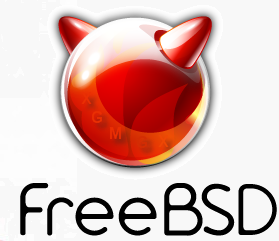I need to transfer 10TB of data from one machine to another machine. Those 10TB of files are living in a large RAID which span across 7 different disks. The target machine has another large RAID which span across 12 different disks. It is not easy to copying those files locally. Therefore, I decide to copy the files over the LAN.
There are four options popping up in my head: scp, rsync, rsyncd (rsync as daemon) and netcat.
scp
scp is handy, easy to use but comes with two disadvantages: slow and not fault-tolerant. Since scp comes with the highest security, all data are encrypted before the transfer. It will slow down the overall performance because of the extra encryption stuffs (which makes the data larger), and extra computational resource (which uses more CPU). If the transfer is interrupted, there is no easy way to resume the process other than transferring everything again. Here are some example commands:
#Source machine
#Typical speed is about 20 to 30MB/s
scp -r /data target_machine:/data
#Or you can enable the compression on the fly
#Depending on the type of your data, if your data is already compressed, you may see no or negative speed improvement
scp -rC /data target_machine:/data
rsync
rsync is similar to scp. It comes with the encryption (via SSH) such that the data is safe. It also allows you to transfer the newer files only. This will reduce the amount of data being transferred. However, it comes with few disadvantages: long decision time, encryption (which increase the size of overhead) and extra computational resource(e.g., data comparison, encryption and decryption etc). For example, if I use rsync to transfer 10TB of files from one machine to another machine (where the directory on the target machine is blank), it can easily take 5 hours to determine which files will need to be transferred before the actual data transfer is initialized.
#Run on the target machine
rsync -avzr -e ssh --delete-after source_machine:/data/ /data/
#Use a less secure encryption algorithm to speed up the process
rsync -avzr --rsh="ssh -c blowfish" --delete-after source_machine:/data/ /data/
#Use an even less secure algorithm to get the top speed
rsync -avzr --rsh="ssh -c arcfour" --delete-after source_machine:/data/ /data/
#By default, rsync compares the files using checksum, file size and modification date.
#Reduce the decision process by skipping the hash check
rsync -avzr --rsh="ssh -c arcfour" --delete-after --whole-file source_machine:/data/ /data/
Anyway, no matter what you do, the top speed of rsync in a consumer-grade gigabit network is around 45MB/s. On average, the speed is around 25-35MB/s. Keep in mind that this number does not include the decision time, which can be few hours.
rsyncd (rsync as a daemon)
Thanks for the comment of our reader. I got a chance to investigate the rsync as a daemon. Basically, the idea of running rsync as a daemon is similar to rsync. On the server, we run rsync as a service/daemon. We specify which directory we want to “export” to the clients (e.g., /usr/ports). When the files get changed on the server, it records the changes so that the when the clients talk to the server, the decision time will be faster. Here is how to set up rsync server on FreeBSD
sudo nano /usr/local/etc/rsyncd.conf
And this is my configuration file:
pid file = /var/run/rsyncd.pid
#Notice that I use derrick here instead of other systems users, such as nobody
#That's because nobody does not have permission to access the path, i.e., /data/
#Either you make the source directory available to "nobody", or you change the daemon user.
uid = derrick
gid = derrick
use chroot = no
max connections = 4
syslog facility = local5
pid file = /var/run/rsyncd.pid
[mydata]
path = /data/
comment = data
Don't forget to include the following in /etc/rc.conf, so that the service will be started automatically.
rsyncd_enable="YES"
#Let's start the rsync service:
sudo /usr/local/etc/rc.d/rsyncd start
To pull the files from the server to the clients, run the following:
rsync -av myserver::mydata /data/
#Or you can enable compression
rsync -avz myserver::mydata /data/
To my surprise, it works much better than running rsync alone. Here are some data I collected during transferring 10TB files from ZFS to ZFS:
Bandwidth measured on the client machine: 70MB/s
zpool IO speed on the client side: 75MB/s
P.S. Initially, the speed was about 45-60MB/s, after I tweak my Zpool, I can get the top speed to 75-80MB/s. Please check out here for references.
I notice that the decision time is much faster than running rsync alone. Also the process is much more stable, with zero interruption, i.e.,
rsync error: received SIGINT, SIGTERM, or SIGHUP (code 20) at io.c(521) [receiver=3.1.0]
rsync error: received SIGINT, SIGTERM, or SIGHUP (code 20) at rsync.c(632) [generator=3.1.0]
rsync: [receiver] write error: Broken pipe (32)
NetCat
NetCat is similar to cat, except that it works at the network level. I decide to use netcat for the initial transfer. If it is interrupted, I will let rsync to kick in the process. Netcat does not encrypt the data, so the overhead is very small. If you transfer the file within a local network and you don’t care about the security, netcat is a perfect choice.
There is only one disadvantage of using netcat. It can only handle one file at a time. It doesn’t mean you need to run netcat for every single file. Instead, we can tar the file before feeding to netcat, and untar the file at the receiving end. As long as we do not compress the files, we can keep the CPU usage small.
#Open two terminals, one for the source and another one for the target machine.
#On the target machine:
#Go to the directory, e.g.,
cd /data
#Run the following:
nc -l 9999| tar xvfp -
#On the source machine:
#Go to the directory, e.g.,
cd /data
#Pick a port number that is not being used, e.g., 9999
tar -cf - . | nc target_machine 9999
Unlike rsync, the process will start right the way, and the maximum speed is around 45 to 60MB/s in a gigabit network.
Conclusion
| scp |
40MB/s |
25MB/s |
No |
Low |
Instant |
| rsync |
25MB/s |
50MB/s |
Yes |
Medium |
Long Preparation |
| rsyncd |
30MB/s |
70MB/s |
Yes |
High |
Short Preparation |
| netcat |
60MB/s (tar w/o -z) |
40MB/s (tar w/ -z) |
No |
Very High |
Instant |
–Derrick
Our sponsors:




